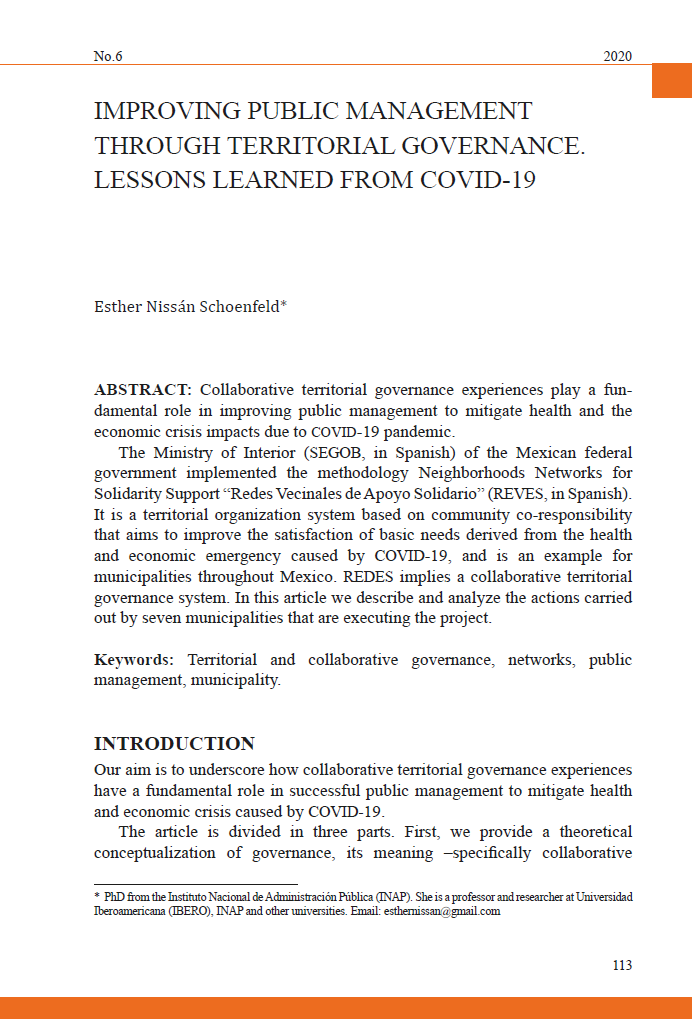Improving public management through territorial governance. Lessons learned from COVID-19
Palabras clave:
territorial and collaborative governance, networks, public management, municipalityResumen
Collaborative territorial governance experiences play a fundamental role in improving public management to mitigate health and the economic crisis impacts due to COVID-19 pandemic. The Ministry of Interior (SEGOB, in Spanish) of the Mexican federal government implemented the methodology Neighborhoods Networks for Solidarity Support “Redes Vecinales de Apoyo Solidario” (REVES, in Spanish). It is a territorial organization system based on community co-responsibility that aims to improve the satisfaction of basic needs derived from the health and economic emergency caused by COVID-19, and is an example for municipalities throughout Mexico. REDES implies a collaborative territorial governance system. In this article we describe and analyze the actions carried out by seven municipalities that are executing the project. Keywords: territorial and collaborative governance, networks, public management, municipality
Descargas
Publicado
Cómo citar
Número
Sección
Licencia

Esta obra está bajo una licencia internacional Creative Commons Atribución-NoComercial-CompartirIgual 4.0.




